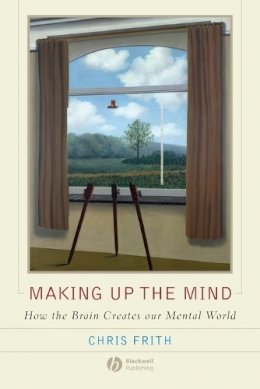
Stock image for illustration purposes only - book cover, edition or condition may vary.
Making up the Mind: How the Brain Creates Our Mental World
Chris Frith
€ 34.99
€ 34.59
FREE Delivery in Ireland
Description for Making up the Mind: How the Brain Creates Our Mental World
Paperback. Written by one of the world's leading neuroscientists, Making Up the Mind is the first accessible account of experimental studies showing how the brain creates our mental world. Num Pages: 248 pages, 103 illustrations. BIC Classification: JM. Category: (P) Professional & Vocational. Dimension: 227 x 154 x 17. Weight in Grams: 404.
Written by one of the world’s leading neuroscientists, Making Up the Mind is the first accessible account of experimental studies showing how the brain creates our mental world.
Written by one of the world’s leading neuroscientists, Making Up the Mind is the first accessible account of experimental studies showing how the brain creates our mental world.
- Uses evidence from brain imaging, psychological experiments and studies of patients to explore the relationship between the mind and the brain
- Demonstrates that our knowledge of both the mental and physical comes to us through models created by our brain
- Shows how the brain makes communication of ideas from one mind to another possible
Product Details
Publisher
John Wiley and Sons Ltd
Number of pages
248
Format
Paperback
Publication date
2007
Condition
New
Weight
392g
Number of Pages
256
Place of Publication
Hoboken, United Kingdom
ISBN
9781405160223
SKU
V9781405160223
Shipping Time
Usually ships in 4 to 8 working days
Ref
99-2
About Chris Frith
Chris Frith is Professor in Neuropsychology at the Wellcome Trust Centre for Neuroimaging at University College London. His publications include Schizophrenia: A Very Short Introduction (2003, with Eve C. Johnstone) and The Neuroscience of Social Interaction (2004, edited with Daniel Wolpert).
Reviews for Making up the Mind: How the Brain Creates Our Mental World
"Making up the Mind is an excellent 'big picture' book. Exactly as its subtitle indicates, this book describes how our brains construct an internal model of the world that enables us to successfully interact with others and generally navigate a complex world." (Psychology Learning and Training, Autumn 2008) "Neuroscience and psychology often struggle to answer the really interesting questions ... Read more
